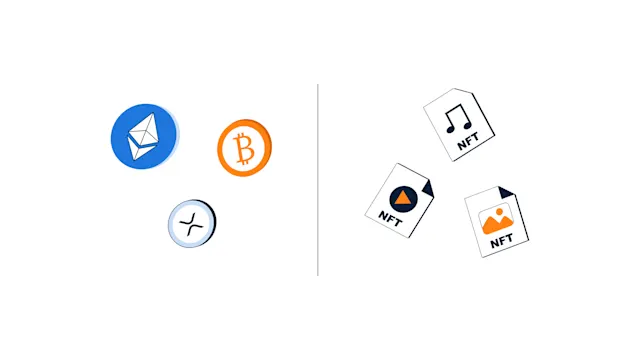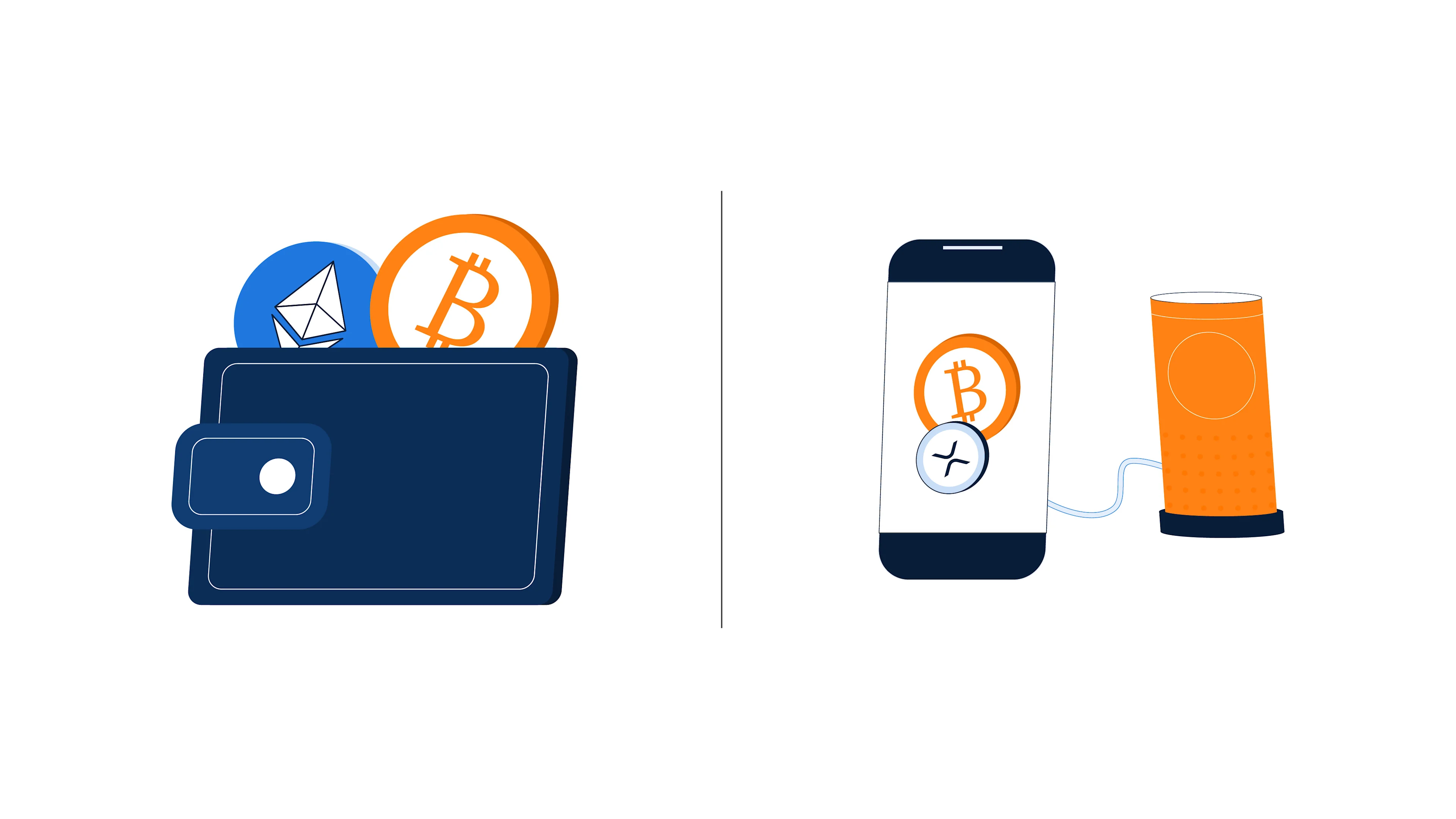
What is the difference between Cold Wallet and Hot Wallet?
Here’s what you need to know when choosing between a hot and cold wallet or opting for the best of both worlds.
When launching your cryptocurrency trading journey, you’ll have to make a daunting decision: choosing between a cold wallet and a hot wallet or maybe using a combination of the two. Here’s what you need to know when choosing between a hot and cold wallet or opting for the best of both worlds.
Wallets
In short, a wallet:
Is a method to store your virtual money, keep track of your balance, and carry out transactions, in addition to other functions.
While it is not saving real coins, it comes with two corresponding cryptographic keys: a public key and a private key.
Public Key: This cryptographic key is designed to allow someone to send digital coins to an address without identifying the user. It's kind of like an account username.
Private Key: This is your own information that you use to identify yourself as the owner of the wallet. It's kind of like a PIN or a password. You can use your private key to get into your hot wallet and see what's happening.
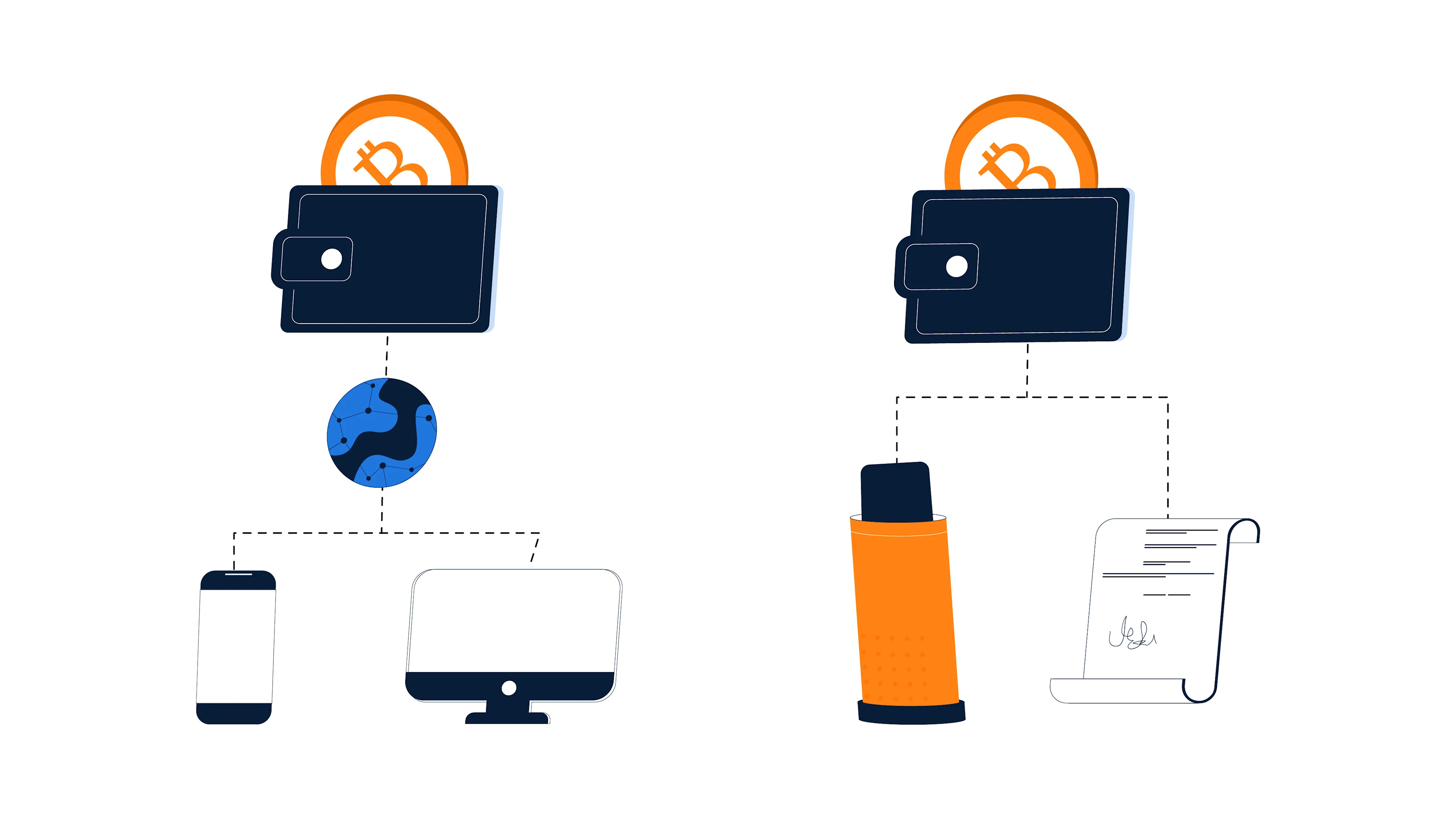
Did you know?
Trezer, the hardware wallet firm, reported a 300% increase in its sales revenue in the aftermath of the FTX contagion as cryptocurrency holders started to explore self-custody of their digital assets.
Despite the 2022 crypto winter, crypto wallet downloads for select 21 apps that allow for cryptocurrency digital currency storage worldwide surpassed 100 million, reaching up to 120 million between January and October of 2022, according to data collected by Finbold.
Crypto hackers looted over $3 billion in 2022 with 125 hacks so far, according to Chainalysis, making it the record year.
Ledger, the hardware wallet maker, announced that it is launching Ledger Stax, a new wallet developed by the former Apple developer Tony Fadell. The wallet employs E Ink technology on a rectangular wraparound display, similar in look to a smartphone.
As of December 2020, the ten largest cryptocurrency wallet apps generated a total of 5,634,548 downloads worldwide. (Airnow, 2021)
The value of global cryptocurrency theft in 2020 was USD 513 million, showing a significant increase from 2019’s USD 370.7 million. (CipherTrace, 2021)
In August 2021, a leading Japanese crypto exchange Liquid Global was hacked, and USD 97 million worth of cryptocurrency was stolen. Now they are moving digital assets from hot wallets to secure cold wallets.

Cold Wallet: The More Secure Option
A cold wallet – also known as a hardware wallet or cold storage – is a physical device that keeps your cryptocurrency completely offline.
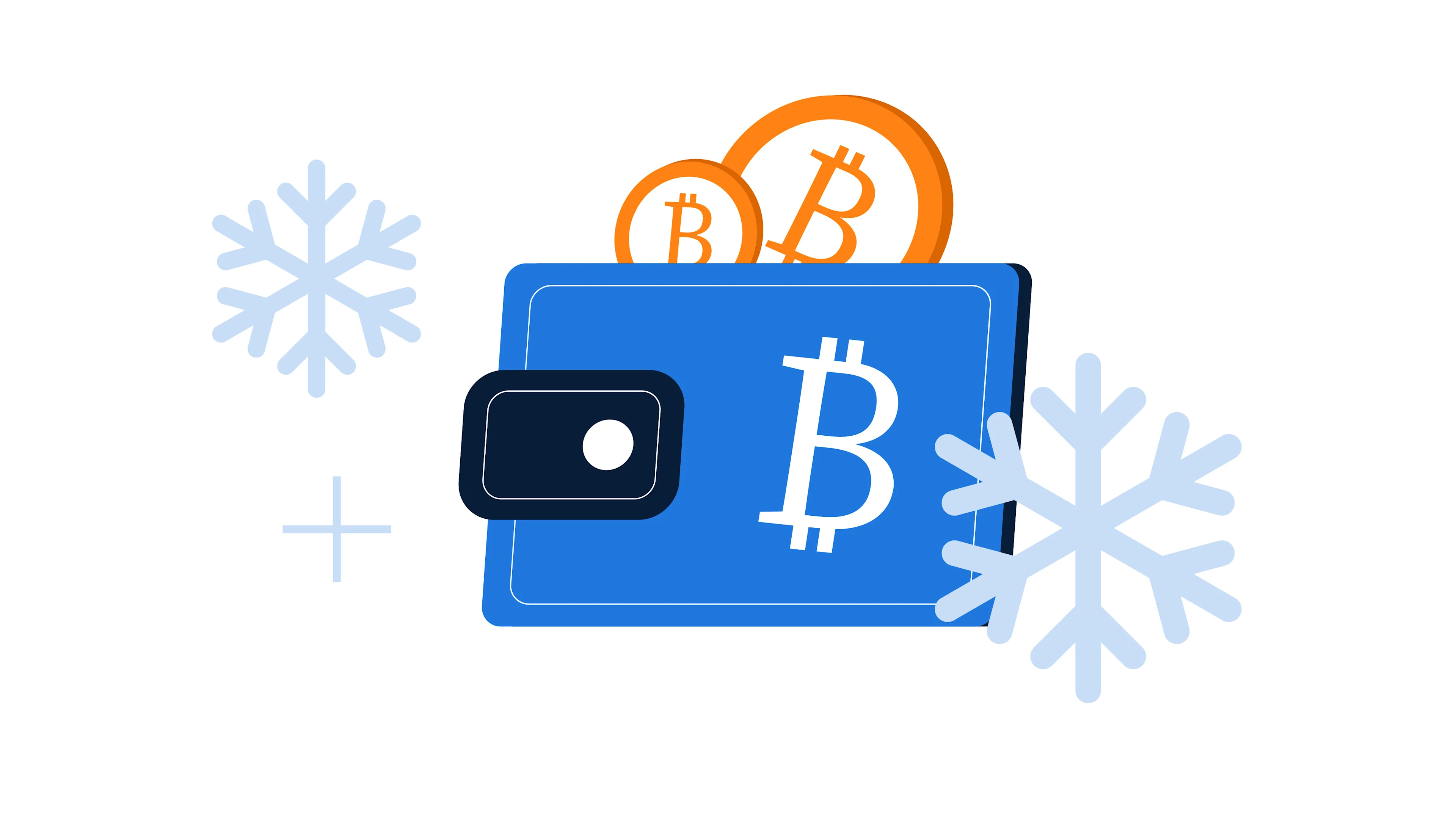
When should you use a cold wallet?
This wallet is a better option if you plan to buy and hold cryptocurrency for a long period of time. With a cold wallet, users need to perform a workflow of online/offline transactions that require moving data between several devices.
Why are cold wallets the preferred option?
The security keys are kept offline, minimizing the likelihood of a hacker attack.
The downside?
You can risk losing your holdings as there is no backup to this form of storage, so lose it or break it and it is all gone!
In summary, a cold wallet:
Is completely offline;
Can only be accessed from the physical device;
Takes longer to make transactions.
Hot Wallets: Essential for Convenience
Hot wallets – also known as software wallets – are instantly accessible online on your computer or smartphone and facilitate cryptocurrency transactions, i.e., buying and selling cryptocurrencies, between their owner and end-users.
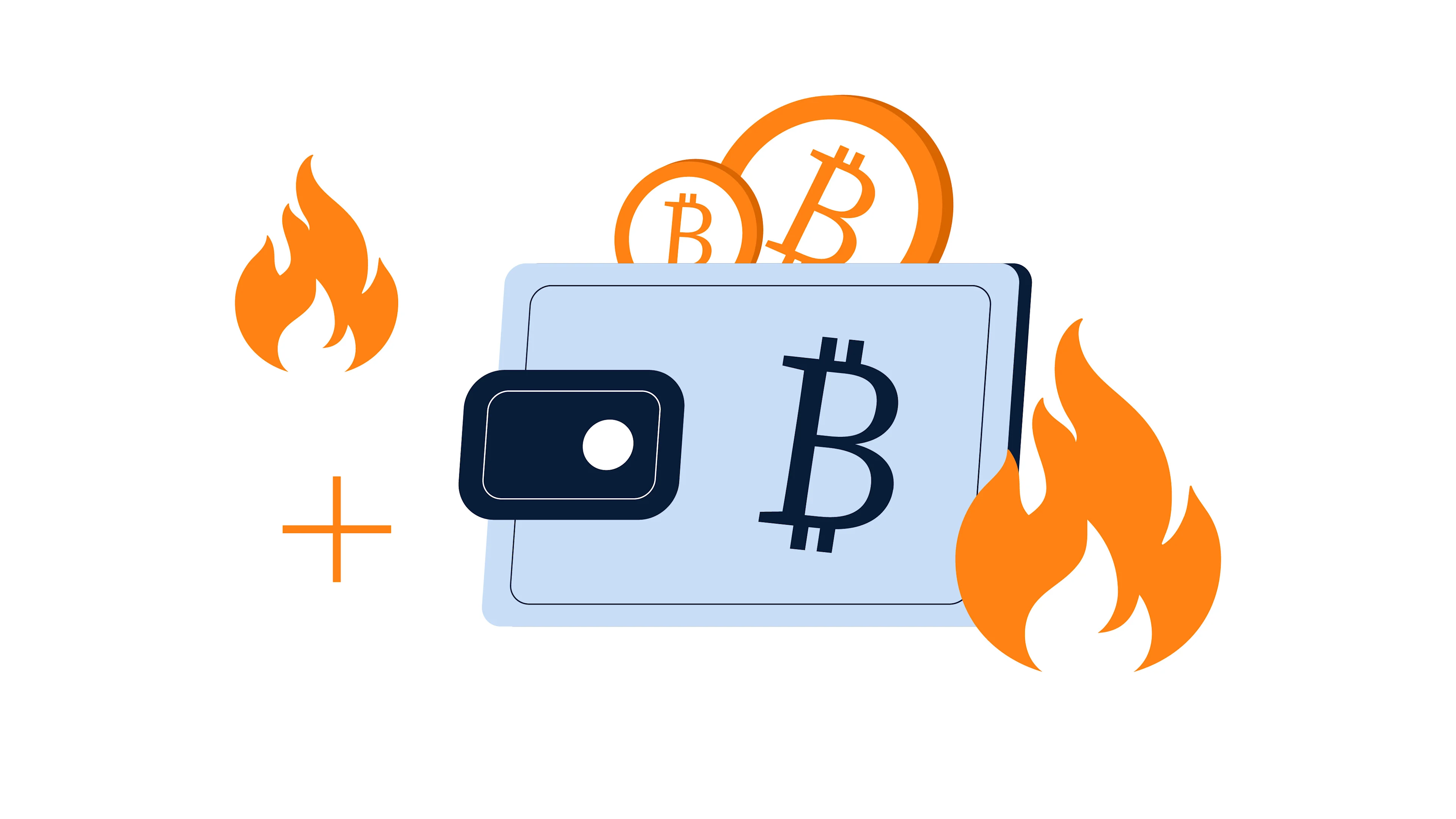
When should you use a hot wallet?
They tend to provide support to users who frequently access their accounts, as they are designed for day-to-day transactions.
Why are hot wallets a problem?
They are more common but are at higher risk, as they could be vulnerable to online attacks. And due to the anonymous nature of blockchain technology, it is extremely difficult to track down the hacker.
In summary, a hot wallet:
Is connected to the internet;
Gives hackers a route into the wallet;
The internet connection makes quicker online transactions.
Deciding Between a Hot Wallet and a Cold Wallet
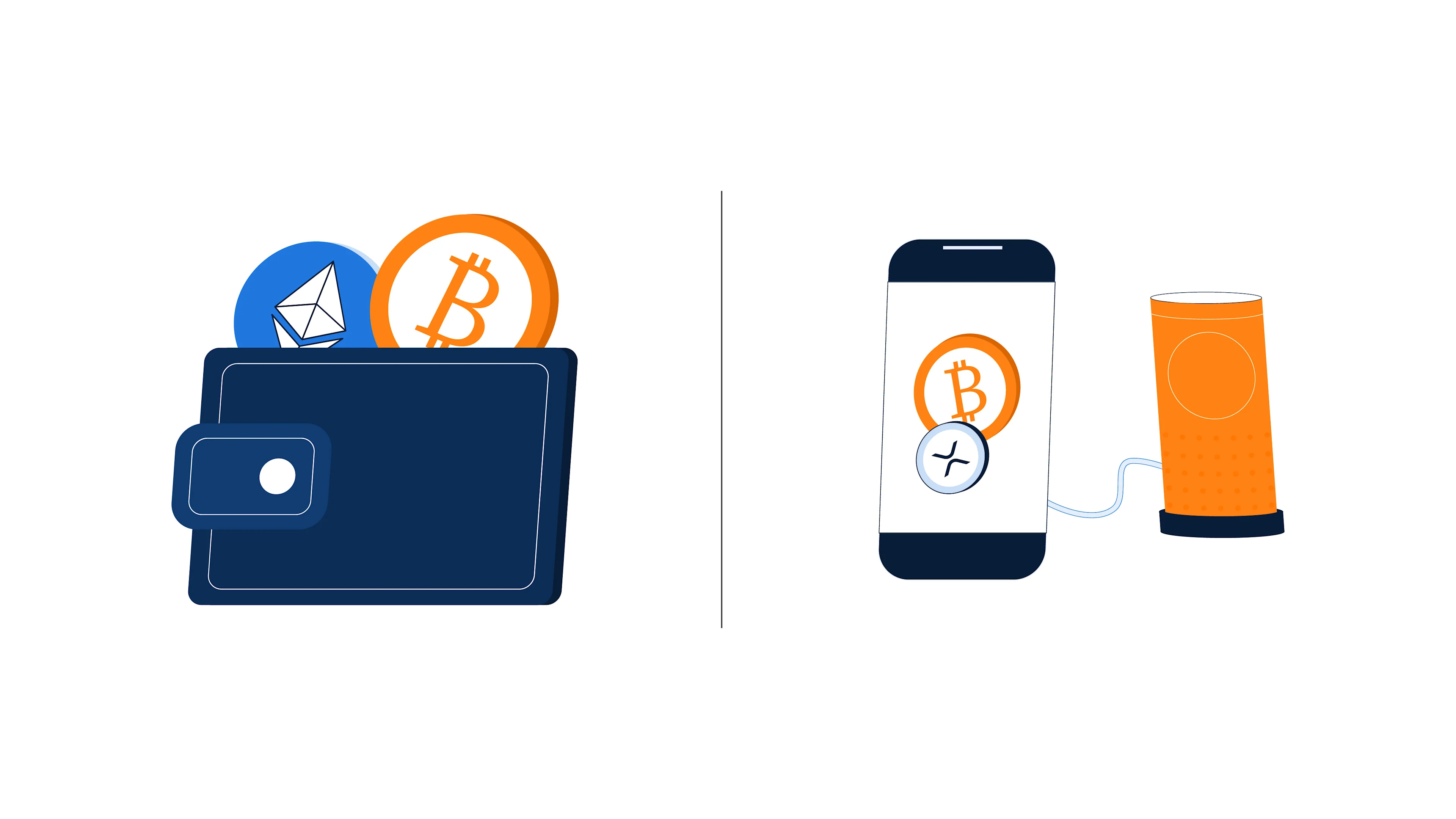
You are surely attracted by the accessibility of a hot wallet and the security of a cold wallet. So why not create the right balance between functionality and peace of mind and opt for a combination of both wallets. Choose the cold wallet for the cryptocurrency you choose to save offline and the hot wallet for keeping your immediately needed funds at hand.
The Bottom Line
Hot wallets are accounts based on online websites, making it faster and easier to trade and spend crypto but also more vulnerable to online attacks. Cold wallets are accounts stored on an offline means, and while they are more secure, they are less convenient.
There’s a lot to think about when investing in cryptocurrency. It makes sense to have a hot wallet connected to the internet and keep a limited number of coins inside for ease of use. However, for security, use a cold wallet to store the bulk of your assets, so they're less accessible to potential hackers.

